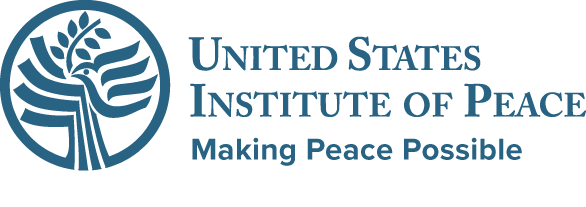
Three University of Notre Dame peace studies students have been awarded grants by the Fulbright U.S. Student Program to conduct research abroad in 2018-2019, in addition to several peace studies Ph.D. students receiving awards and grants to support dissertation research and completion.
"We are thrilled that students at every level of the program are being recognized by granting agencies for the quality of their work,” says Catherine Bolten, associate professor of anthropology and peace studies and director of the doctoral program at the Kroc Institute for International Peace Studies. “The diversity of projects represented in these awards reveals the spectrum of quality research that occurs on processes of conflict and peace. It is clear that Kroc students are at the forefront of developing new ways of understanding and transforming conflict."
Kristina Hook, Ph.D. student in anthropology and peace studies, received a Fulbright grant to support field research in Ukraine. Hook is studying the Ukrainian Holodomor, an artificially induced famine under Joseph Stalin that killed an estimated 2.5-7.5 million people in Soviet Ukraine from 1932-33. Hook hopes her research will contribute to the growing field of scholarship identifying early indicators that help to “sound the alarm” about the risk of genocide. During her time abroad, Hook will conduct research at Soviet archives and conduct ethnographic research exploring how key Ukrainian stakeholders articulate and understand the Holodomor’s legacy and impact on modern Ukraine.
“Due to the complexity and chaos of genocides, prevention efforts remain our best chance at saving lives, and I’m eager to see what the Holodomor case call tell us for this important work,” says Hook. “As anthropologists, we prioritize spending as much time as possible in our research field sites, to make sure that we understand the full context behind our particular research question. I’m thankful that the Fulbright program will allow me to live in Ukraine for another nine months and develop even deeper knowledge.”
Maryam Rokhideh, Ph.D. student in anthropology and peace studies, received a Fulbright grant that will enable her to conduct field research at the border of Rwanda and the Democratic Republic of Congo. Rokideh’s dissertation will examine the ways that conflict populations near this border “navigate daily insecurity and seek possibilities to shape a better future through cross-border trade.” The Fulbright grant will not only facilitate Rokhideh’s dissertation research, but will support her work to build institutional collaboration and promote intellectual exchange between two universities, Kigali (Rwanda) Independent University and Université Libre des Pays des Grands Lacs, Goma, Democratic Republic of Congo.
“For decades Rwandan and Congolese [individuals] have used the border as a site of opportunity—for refuge, mobility, and economic prosperity,” says Rokhideh. “With migration and regional conflicts on the rise, it is even more important to understand the risks and outcomes of border crossings, and the DRC-Rwanda case illustrates why vulnerable populations engage in high risk activities to survive and even thrive in situations of profound uncertainty.”
Francesco Tassi, a 2018 graduate with a bachelor’s degree in international economics, a supplementary major in peace studies, and a minor in international development studies, was awarded a Fulbright to continue research alongside refugees in Italy. Tassi began this research during summer 2017 thanks to grants from the Kellogg Institute for International Studies and the Nanovic Institute for European Studies. During the summer, he spent 10-15 days each in six small Italian towns, studying the refugee and local community member experience from the Italian Alps to the Sicilian shores, conducting research and interviews to try to understand what conditions helped to create a flourishing of community between refugees and locals in small towns. In 2018-19, Tassi will be conducting research in 10 additional towns as part of a project with Italy’s System for the Protection of Asylum Seekers and Refugees (SPRAR). His research will seek to better understand how local community issues impact refugees and explore strategies employed by small town mayors attempting to address local poverty, emigration, and refugee reception.
“We live in times of uncertain change. Many communities have lost their compass,” says Tassi. “It is our duty as peace practitioners to listen to the voices that cannot sing. It is tempting to embrace solutions from the right or the left in today’s polarized times, but peace studies has always taught me to search for the middle ground and, above all, to listen. I will constantly draw upon this for my future research.”
"I am delighted that Francesco has received a Fulbright award to continue his studies,” says Ernesto Verdeja, associate professor of political science and peace studies and Kroc’s director of undergraduate studies. “Francesco's own work and interests reflect the core values of the peace studies program: a commitment to responding to the greatest challenges of our time through scholarly rigorous research and practice. The Fulbright is a well-deserved recognition of the intellectual sophistication of his project, as well as the urgency of addressing the plight of some of the most vulnerable populations among us."
In addition to the three Fulbright recipients, Angela Lederach, Ph.D. student in anthropology and peace studies, received a 2018 Jennings Randolph Peace Scholar
Award from the United States Institute of Peace. The award is given to outstanding doctoral students in U.S. universities and supports 10 months of dissertation writing.
Lederach’s research dissertation focuses on an analysis of the 2016 Colombian peace accord, examining the everyday interactions between grassroots activists, state bureaucrats, NGO workers, private sector actors and demobilized FARC members to explore the ways that they “engage, contest and rework” concepts of peace within local contexts. Lederach has conducted 22 months of ethnographic research alongside peace movements in Colombia.
“At the intersection of environmental and political anthropology, I develop the concept of 'slow peace' to identify the practices that communities use to respond to the overlapping violence(s) of social fragmentation, environmental degradation, and armed conflict,” says Lederach.
Additional awards received by peace studies doctoral students include:
- Leslie MacColman, sociology and peace studies, was honored with an Outstanding Graduate Student Teacher award from the Notre Dame Kaneb Center for Teaching and Learning and the Graduate School.
- Ana Sanchez-Ramirez, history and peace studies, received a graduate research grant from the Kellogg Institute. The award supports archival research in Colombia during Summer 2018.
About the Kroc Institute: The Kroc Institute for International Peace Studies supports study, research and practice centered on strategies for sustainable peace and supports undergraduate, master’s, and Ph.D. students in peace studies. The Kroc Institute is part of the Keough School of Global Affairs at the University of Notre Dame.
